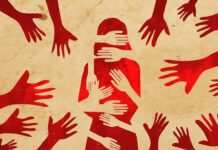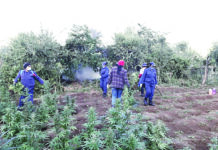With just a few days ahead of the 16 Days of Activism against gender-based violence (GBV), it turns out that the 2022 Violence Against Children Survey shows that 5.5% of young women aged 18 to 24 experienced sexual violence before the age of 18.
Men, on the other hand, are more prone to physical violence, with the Multiple Indicator Cluster Survey indicating that 23% of men versus 10.5% of women have experienced physical violence.
This was revealed by United Nations Population Fund (UNFPA) Head of Office Magareth Thwala-Tembe during a meeting with editors on strengthening GBV reporting capacity.
This is where, through a partnership with the European Union (EU), they unpacked an anti-GBV communication strategy styled: ‘Hlonipheka: Thriving for Dignity Programme’.
She pointed out that the anti-gender-based violence communication strategy they were unpacking yesterday formed part of the broader 365 Days of Action to end GBV. She said the need for intensified action could not be overstated and that GBV remained pervasive in Eswatini.
Thwala-Tembe emphasised that editors played a defining role in shaping how the nation understood gender-based violence.
“Through agenda setting, you determine which issues receive prominence, thereby guiding public attention toward the realities that require urgent action. Through framing, you influence how these issues are interpreted, how survivors are portrayed and whether communities feel empowered to respond,” she highlighted.
recognised
She also recognised that gaps remained and that when coverage was driven by sensationalism or framed in ways that reinforced stigma, it could unintentionally cause harm.
Such approaches, she noted, might silence survivors, discourage reporting and weaken public confidence in the systems that exist to protect them.
“Strengthening responsible agenda setting and adopting survivor-centred framing can contribute significantly to shifting harmful norms and promoting a more informed, compassionate national response to GBV.
“This engagement seeks to strengthen our partnership with you, so that reporting on GBV becomes more sensitive, ethical, accurate and survivor-centred. Reporting that informs, protects, and empowers,” she said.
Thwala-Tembe said that under the banner ‘Sisonkhe’ they were together in the fight against GBV, with the campaign calling for unity, dignity, justice and solidarity. She advised that these values should guide how everyone spoke about GBV, how they portrayed survivors and how they mobilised the public towards prevention and support.
“As we approach the 16 Days of Activism and the national launch of the campaign, we look to you our editors as key influencers who can amplify accurate information, promote help-seeking, counter misinformation, and model responsible journalism. Ending GBV is a shared responsibility. Sisonkhe, we can only move forward when we move together,” added the head of office.









